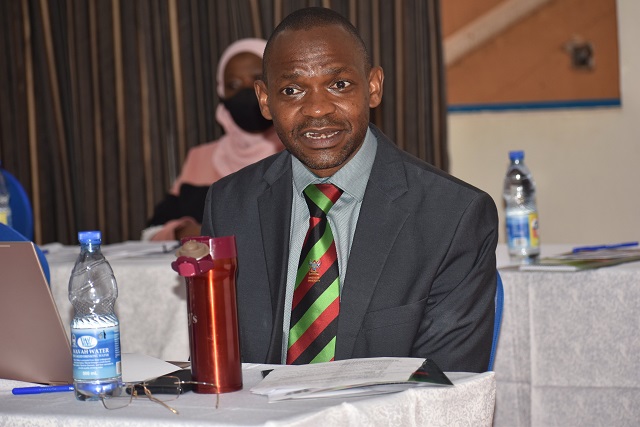
Kampala, Uganda | THE INDEPENDENT | Several students at Makerere University are still struggling to register on the university e-learning platform ahead of the online assessment scheduled to start next week. The university management extended the date from September 6, 2021 to September 13, 2021 to address the concerns of students on the online examinations.
However, barely a week to the exams, several students have failed to register on the Makerere University e-Learning Environment (MUELE) platform. For students to open up an account on MUELE, they must have an email account from the university and should have registered for the current semester.
Thereafter, successful students can access reading material, course works and also be able to submit assignments. While it may appear to be straightforward for most students on the first attempt, students attending training on how to navigate the e-Learning platform report several challenges hindering them from penetrating the system.
Wycliff Baguma from the school of Women and Gender Studies notes that a lecturer assisted their class to open similar accounts last year but at the moment, they cannot log in since they were never given their user names and passwords. As a result, the system rejects their attempts to open any new accounts claiming they already have accounts.
Maria Namukasa, a student from the College of Humanities and Social Sciences explains that she has found challenges attempting to activate her account since last week in vain. She is worried that she has spent more time trying to activate the account than revising to prepare for examinations.
“I created my webmail last year. When I tried to create a new email, it says it’s already existent. Time is running out for me,” she told URN. Lucy Kyomuhendo from the College of Natural Sciences in her first year is puzzled that her account has failed to operate on her phone yet it opens on her colleague’s phone.
Opportunists have taken advantage of the panicking students to make money. A student from the College of Agriculture and Environmental Sciences only identified as Naboth explains that after four failed attempts to log into MUELE, he had to part with Shillings 3,000 to get assistance.
“A friend of mine directed me to someone who could open for me at Shillings 3,000 and he sorted it quickly. He told me to send him a screenshot of my account, which he corrected and I sent him his pay through mobile money,” he said.
Some of those helping the students charge Shillings 5,000 to open accounts and sort issues around navigating MUELE for students. Amo Maida, a student at the University who formerly used to assist fellow learners decided to charge Shillings 5,000 following high demand for his service in this season.
“Note that the service is free but considering the number of students who reach us, we have decided to put a small fee. You know I am also a student preparing for my exams and I have to invest time and data in this,” he said.
Whereas the Makerere University Directorate of ICT supports finalists with its weekly zoom meetings, some are not in a position to attend because of challenges with timing, network connectivity in their homes and data costs.
A survey carried out by the student guild leadership indicated that while 50% of the learners preferred online examinations, most noted that take-home assignments would be less challenging compared to online assessments. The university however through the Deputy Vice-Chancellor Academics, Professor Umar Kakumba insisted that student’s fears concerning online examinations would be alleviated before the assessment.
Several institutions of Higher Learning like Uganda Christian University, Kampala International University and Ndejje University among others have taken to such alternative modes of assessment since the outbreak of COVID-19. The pandemic came along with the lockdown of schools and higher institutions of learning as a part of the preventive measures.
*****
URN
 The Independent Uganda: You get the Truth we Pay the Price
The Independent Uganda: You get the Truth we Pay the Price


